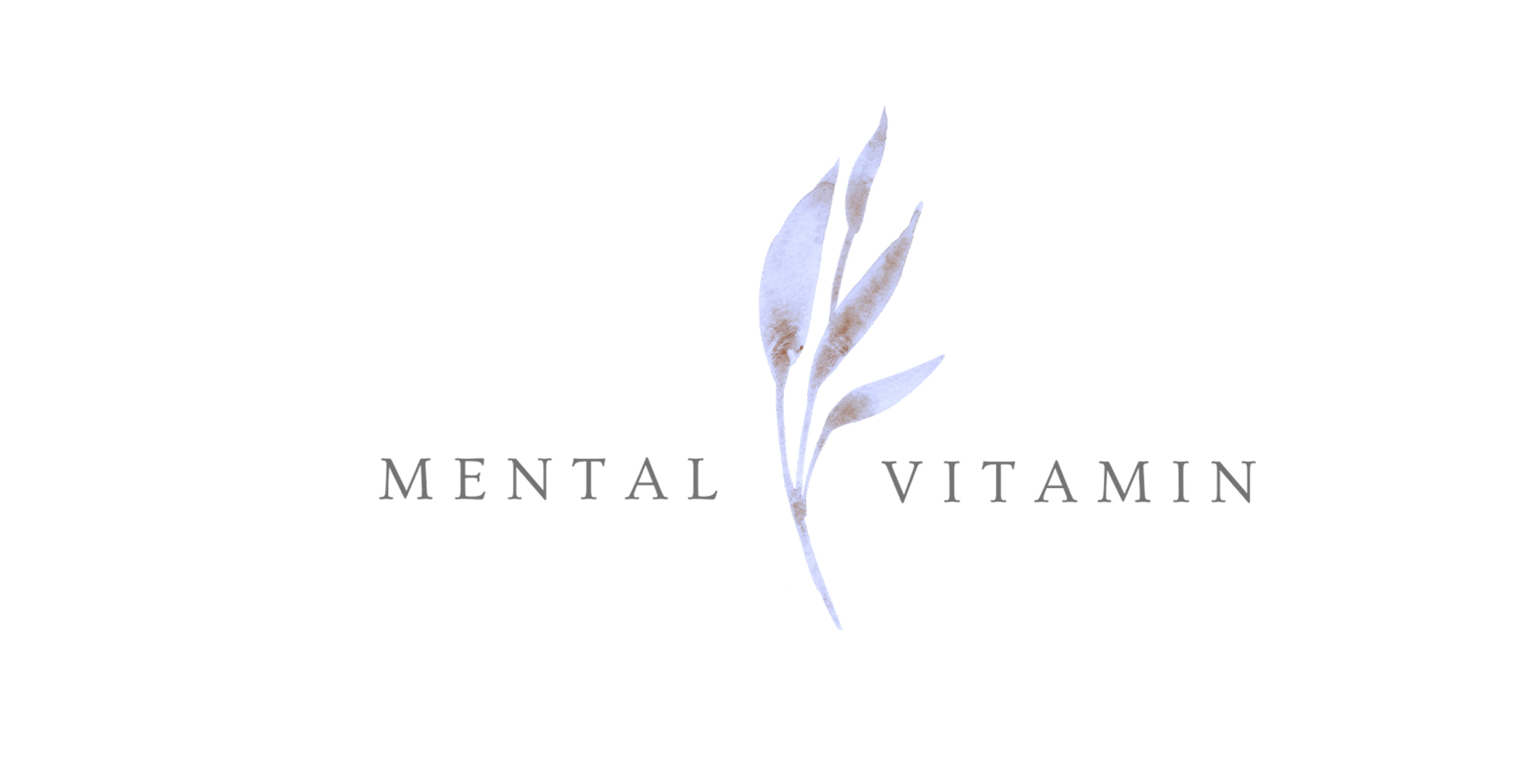Just a friendly heads-up! The information shared in this post is for general knowledge purposes only and should not be considered a substitute for professional medical advice. It’s crucial to talk to a healthcare professional before trying any new supplements. They can provide personalized guidance based on your unique needs and ensure they are safe for you. Remember, your health comes first, so consult with a qualified healthcare provider for the best advice tailored to you.
This article may contain compensated links. Please read Disclaimer for more info. As an Amazon Associate, I earn from qualifying purchases.

Table of Contents
You’re stuck in a storm with no shelter in sight.
It’s a never-ending battle: A constant loop of nervous tension, restless nights, and crushing pressure.
These aren’t just random bad days; they could be signs of low GABA levels in your brain.
If you’re new to the term, GABA is a neurotransmitter that’s crucial for regulating your emotional well-being. When it’s out of balance, life can feel like an unending tempest.
But you’re not destined to live your life in a constant state of emotional upheaval. Whether you’re yearning for a good night’s sleep, meaningful relationships, or simply the freedom to enjoy life without the weight of anxiety, there are paths forward.
We’ve prepared a list of 10 actionable hacks to replenish your GABA levels. These strategies are designed to guide you toward a more stable emotional state.
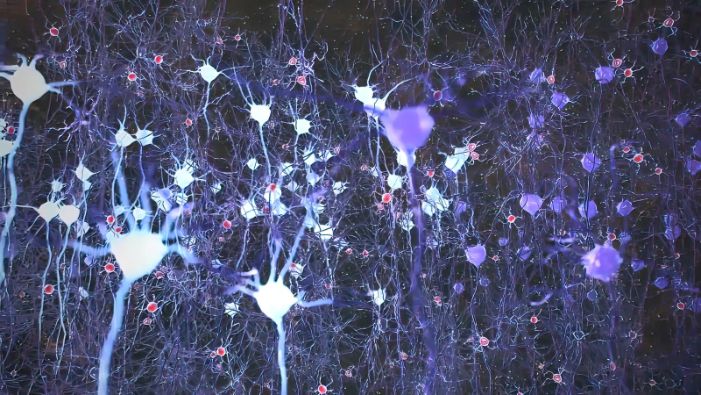
Understanding GABA: The Brain’s Natural Calmative
Gamma-aminobutyric acid, commonly known as GABA, serves as a neurotransmitter in your brain. It’s a chemical messenger that plays a pivotal role in your central nervous system.
Its primary function?
To slow down the excessive signaling between your brain’s nerve cells. By doing so, it helps you feel more relaxed and reduces emotional states that can be disruptive, like feeling on edge or overly concerned.
The Science of GABA’s Functionality
So, how does GABA achieve this calming effect?
GABA and other neurotransmitters are responsible for carrying messages from one nerve cell to another in your brain. Between each nerve cell, there’s a small, fluid-filled gap known as a synapse. GABA has to cross this synapse to deliver its message to the next nerve cell.
The calming effect of GABA comes into play when it successfully binds to its specific receptors on the next nerve cell. Once docked, GABA slows down the activity of that nerve cell.
By reducing this overactivity, GABA helps stabilize your emotional state, making you feel more relaxed and focused.
GABA’s Balancing Act in the Brain
Maintaining the right amount of GABA in your brain is a nuanced task. An overabundance can dampen your brain’s activity to detrimental levels. High GABA symptoms include:
- Excessive sedation
- Respiratory issues
- Impaired thinking
Conversely, insufficient GABA can make your brain hyperactive, leading to conditions such as:
- Constant worry
- Sleeplessness
- Seizure disorders
There is a whole range of further low GABA symptoms, such as irritability, feelings of dread, muscle spasms, difficulty concentrating, palpitations, and shortness of breath.
As we can see, straying too far in either direction can result in a host of problems. Therefore, our goal isn’t merely to increase GABA production; it’s about finding that sweet spot that keeps both your mind and body in harmony.
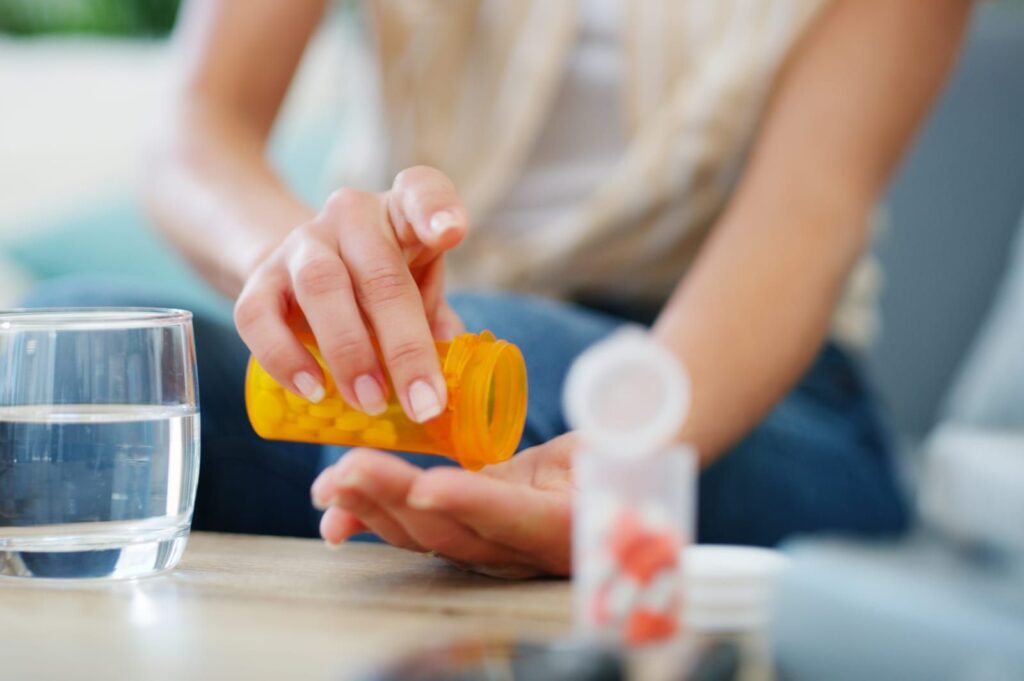
GABAergic drugs
GABA is so important that many medications directly target its receptors to treat various health issues.
For instance, benzodiazepines like Valium and Xanax. These are often prescribed for anxiety and insomnia and work by enhancing the effect of GABA, thereby calming the nervous system.
Another class of drugs, known as barbiturates, also interact with GABA receptors to produce sedative effects.
Antiepileptic medications like Gabapentin are designed to mimic GABA’s action and are used to control seizures.
However, it’s important to keep in mind that many of the drugs that increase GABA come with a hidden cost—they can be addictive. For long-term mental and emotional stability, it makes sense to look into natural ways to maintain balanced GABA levels.
Choosing Natural Methods for GABA Benefits
Natural methods for increasing GABA synthesis can contribute to a holistic approach to mental health. From dietary changes to exercise and mindfulness practices, alternative approaches can be both effective and empowering. They allow you to take an active role in your mental health rather than relying solely on medications.
You’ll find that looking into how to increase GABA levels is a worthwhile effort: Not only will you be dealing with fewer side effects, but you’ll also reap some astonishing long-term benefits.
GABA Boosters: Strategies for Mental Health
Whether you’re dealing with anxiety, insomnia, extreme stress, or other GABA deficiency symptoms, understanding how to increase GABA naturally can be a valuable asset in your mental health toolkit.
Hack 1: Foods That Fuel Your GABA Levels
When it comes to boosting your GABA levels naturally, food can be a powerful ally. What you eat directly impacts your neurotransmitters, and certain foods are particularly effective in fueling your GABA levels.
Foods that Increase GABA
- Fermented Foods: Foods like yogurt, kefir, and sauerkraut are the best natural GABA sources. They contain probiotics that promote a healthy gut microbiome, which in turn is linked to improved mental well-being and higher GABA levels.
- Leafy Greens: Spinach, kale, Swiss chard and other leafy vegetables are high in magnesium, a mineral that acts as a co-factor for the enzyme that converts glutamate into GABA.
- Nuts and Seeds: Almonds, walnuts, and sunflower seeds are also magnesium-rich, offering another tasty option for a GABA boost.
- Fish: Fatty fish like salmon and mackerel are high in omega-3 fatty acids and are therefore great foods that increase GABA.
- Fruits: Bananas and berries contain natural sugars and other compounds that can increase GABA levels.
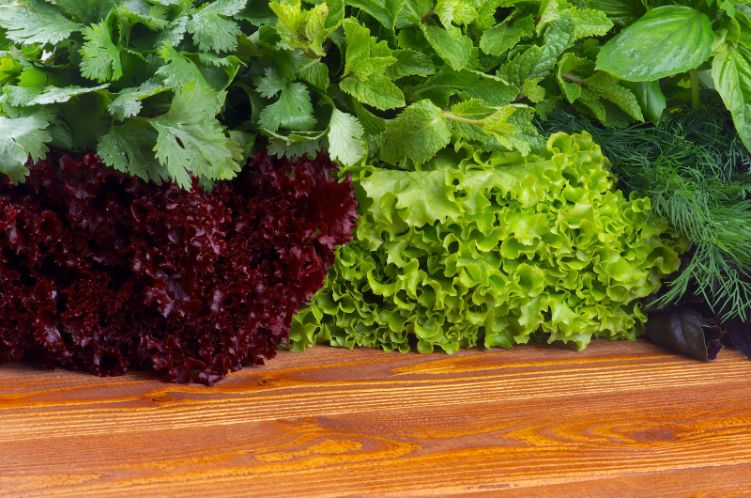
Understanding the Role of Amino Acids
Amino acids are the building blocks of proteins, and some of them play a direct role in GABA production.
So, how do you increase GABA naturally using this route? Here are some examples:
- Glutamine: This amino acid serves as a precursor to GABA. Foods rich in glutamine include beef, chicken, and eggs.
- Taurine: Found in meat and fish, taurine has been shown to activate GABA receptors, enhancing the neurotransmitter’s calming effects.
- Theanine: Present in green tea, theanine can cross the blood-brain barrier and increase GABA levels.
Incorporating these foods and amino acids into your diet can offer a natural way to boost your GABA levels. It’s not just about adding a single food to your diet but creating a balanced nutritional profile that supports GABA production and function.
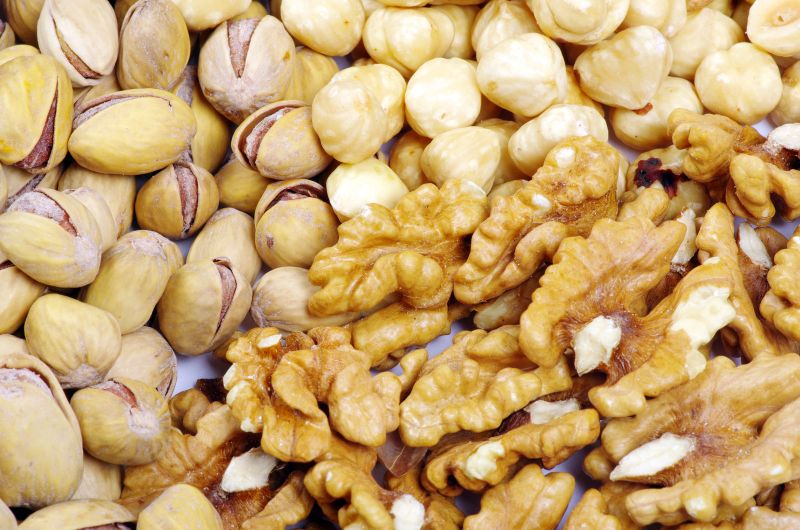
Hack 2: The Power of Exercise
Exercise serves multiple purposes beyond the obvious goals of muscle building or weight loss. It acts as a potent tool for neurotransmitter balance. Here’s a breakdown of how to increase GABA in the brain through movement.
Neurotransmitter Balance Through Physical Activity
- Endorphin Release: Exercise triggers the release of endorphins, which are often termed “feel-good” hormones. These endorphins can tackle low GABA and anxiety, leading to a calmer state of mind.
- Stress Reduction: Physical activity reduces levels of the stress hormone cortisol. Lower cortisol levels can make it easier for GABA to exert its calming effects.
- Improved Sleep: Exercise can enhance the quality of your sleep, a time when your brain naturally produces GABA to help you rest and recover.
How to Increase GABA Naturally with Exercises
- Aerobic Exercise: Activities like running, swimming, and cycling are effective in boosting GABA levels. Aim for at least 30 minutes of moderate aerobic exercise most days of the week.
- Yoga: This mind-body practice not only improves flexibility but also increases GABA levels. A study showed that just a single one-hour session of yoga led to a 27% increase in GABA levels.
- Strength Training: Lifting weights can also contribute to higher GABA levels. Focus on compound movements like squats and deadlifts that engage multiple muscle groups.
- Mindfulness-Based Exercises: Practices like tai chi and qigong combine physical activity with mindfulness, enhancing the GABA-boosting effects of exercise.
The key is to find an exercise routine that you enjoy and can stick with. Consistency is crucial for long-term neurotransmitter balance. By incorporating a mix of aerobic, strength, and mindfulness-based exercises, you can create a comprehensive plan for naturally boosting your GABA levels.
Hack 3: Mastering Mindfulness
Mindfulness is the practice of paying full attention to the present moment without judgment. This simple yet powerful technique offers tangible benefits for your mental health, including a natural increase in GABA levels.
But you might be wondering, how can I increase GABA naturally with this approach?
The answer is simple: By focusing on the here and now, you can alter your brain chemistry for the better.
How Mindfulness Increases GABA
- Cortisol Reduction: Mindfulness practices have been shown to reduce levels of the stress hormone cortisol. Lower cortisol levels can create an environment in the brain that allows for increased GABA production.
- Brainwave Modulation: Mindfulness and meditation practices have been associated with changes in brainwave patterns. These changes can promote relaxation and potentially increase GABA levels.
- Enhanced Focus: Mindfulness improves concentration and focus, which can reduce excessive neural activity. This reduction may encourage the brain to produce more GABA to maintain this calmer state.
- Improved Sleep Quality: Mindfulness practices can improve sleep quality, and good sleep is associated with balanced neurotransmitter levels, including GABA.
Practical Tips for Incorporating Mindfulness into Your Routine
- Start Small: You don’t need to meditate for hours to see benefits. Even just 5-10 minutes of mindfulness a day can make a difference.
- Use an App: There are numerous mindfulness apps that offer guided sessions, making it easier to get started.
- Be Consistent: Consistency is key. Make mindfulness a daily habit to see a sustained increase in GABA levels.
- Incorporate Mindfulness Throughout the Day: You can practice mindfulness in everyday activities like eating, walking, or even washing dishes. The idea is to be fully present in whatever you’re doing.

Hack 4: Unlocking the Benefits of Deep Breathing
Deep breathing is more than a stress-relief technique; it’s a scientifically supported practice that can be done anywhere, anytime to enhance mental well-being and increase GABA levels naturally.
The Physiology of Deep Breathing
- Stress Reduction: Deep breathing is known to reduce stress by activating the parasympathetic nervous system, which helps to calm the body and mind. Reduced stress can create a more favorable environment for neurotransmitter balance, including GABA.
- Improved Focus and Relaxation: Deep breathing exercises can improve your focus and relaxation, which may indirectly support healthy GABA levels by reducing neural excitability.
- Enhanced Sleep Quality: Deep breathing techniques can improve the quality of your sleep. Good sleep is essential for balanced neurotransmitter levels, including GABA.
Techniques for Effective Deep Breathing
- Diaphragmatic Breathing: Also known as “belly breathing,” this technique involves inhaling deeply through the nose, allowing your diaphragm to expand, and then exhaling slowly.
- 4-7-8 Technique: Inhale through the nose for 4 seconds, hold the breath for 7 seconds, and then exhale through the mouth for 8 seconds. Repeat this cycle four times.
- Box Breathing: Inhale for 4 seconds, hold the breath for 4 seconds, exhale for 4 seconds, and then hold the breath again for 4 seconds. Repeat this cycle for a few minutes.
- Progressive Relaxation: Combine deep breathing with progressive muscle relaxation. Inhale deeply while tensing a muscle group, and then exhale while releasing the tension.
- Consistency is Key: Like any other practice, the benefits of deep breathing are best realized through consistent practice. Aim for at least a few minutes each day.

Hack 5: Quality Sleep for Quality GABA
Taking care of good quality sleep is one of the most efficient ways to increase GABA naturally. And what’s more, it will also improve your overall mental health.
The Sleep-GABA Connection
- Natural Production: During the REM stage of sleep, your brain is thought to produce more GABA, contributing to the refreshed feeling you experience upon waking.
- Anxiety Reduction: While quality sleep doesn’t directly boost GABA, it does lower stress hormones. This creates a favorable environment for neurotransmitter balance, including GABA, which can lead to reduced anxiety.
- Cognitive Function: Quality sleep is essential for cognitive functions such as memory and attention. Although the direct relationship between sleep and GABA levels isn’t fully understood, good sleep supports a neurotransmitter balance that is beneficial for cognitive well-being.
Tips for Achieving Restorative Sleep
- Consistent Schedule: Go to bed and wake up at the same time every day, even on weekends. Consistency helps regulate your body’s sleep-wake cycle.
- Create a Sleep-Friendly Environment: Make your bedroom a sanctuary for sleep. This means a comfortable mattress, blackout curtains, and no electronic devices.
- Limit Stimulants: Avoid caffeine and alcohol close to bedtime, as they can interfere with GABA production.
- Wind-Down Routine: Develop a pre-sleep routine that helps you relax. This could include reading, taking a warm bath, or doing some light stretching.
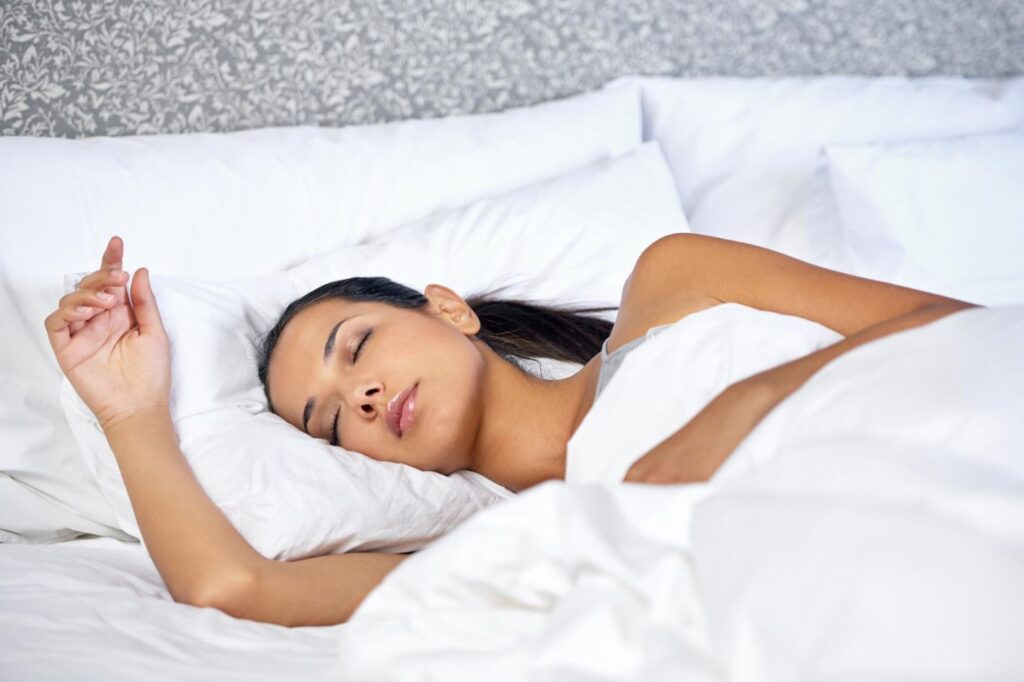
Hack 6: The Role of Hydration
Hydration is often overlooked when it comes to mental health, but it plays a significant role in neurotransmitter balance. Maintaining proper hydration can be an uncomplicated yet effective method to naturally increase your GABA levels.
How Dehydration Affects Neurotransmitters
- Cognitive Decline: Dehydration can lead to cognitive impairments, affecting memory, attention, and mood, all of which are regulated by GABA.
- Stress Hormones: Lack of adequate water can elevate cortisol levels, the stress hormone that counteracts the calming effects of GABA.
- Brain Function: Water is essential for optimal brain function, and even mild dehydration can affect the brain’s neurotransmitter balance.
The Science of Hydration and GABA
- Cellular Health: Water is crucial for cellular function, including the cells in your brain that produce GABA.
- Blood Flow: Proper hydration supports healthy blood flow, which is essential for transporting GABA to where it’s needed in the brain.
- Detoxification: Water flush out toxins that can interfere with GABA production.
Tips for Staying Hydrated
- Daily Intake: Aim for at least 8 cups of water a day, more if you’re active or live in a hot climate.
- Balanced Fluids: While water is the best choice, herbal teas and natural fruit juices can also contribute to your daily fluid intake.
- Limit Diuretics: Beverages like coffee and alcohol can dehydrate you, so consume them in moderation.
- Hydration Foods: Foods like watermelon, cucumber, and oranges also contribute to hydration.

Hack 8: Cutting Down on Stimulants
Reducing your intake of stimulants like caffeine, nicotine, and certain medications isn’t just good for your physical health; it can also have a positive impact on your GABA levels.
Impact of Stimulants on GABA
- Caffeine Jitters: Caffeine can overstimulate the nervous system, reducing the effectiveness of GABA in calming the mind.
- Nicotine Imbalance: While nicotine may initially seem to relax you, it actually disrupts GABA function in the long term, leading to increased anxiety and stress.
- Medication Side Effects: Some stimulant medications can interfere with GABA production or function, making them counterproductive for those looking to increase GABA levels.
Tips for a Successful Detox
- Gradual Reduction: Going cold turkey can lead to withdrawal symptoms. Instead, try reducing your intake gradually.
- Alternative Choices: Replace caffeinated beverages with herbal teas or flavored water to make the transition easier.
- Consult a Healthcare Provider: If you’re on stimulant medication, consult your healthcare provider for alternative treatment options that won’t interfere with GABA.
- Track Progress: Keep a journal or use an app to track your stimulant intake and how you feel. This can provide valuable insights into how cutting down is benefiting you.

Hack 9: The Herbal Route
Wondering what supplements increase GABA in the brain? Or what herbs might be helpful?
While the efficacy of herbal supplements is a topic of ongoing research, many people find them to be a valuable addition to their mental health toolkit. Let’s explore the plants, herbs and supplements that increase GABA effectively.
Plants and Herbs as Natural GABA Boosters
- Valerian Root: Known for its calming effects, valerian root is often used to treat insomnia and anxiety, both of which are linked to GABA.
- Lavender: This aromatic herb is not just for aromatherapy; it has properties that can enhance GABA activity.
- Lemon Balm: Often used in teas, lemon balm can help reduce stress and anxiety by interacting with GABA receptors.
- Passionflower: This plant has been shown to increase GABA levels, making it a popular choice for natural anxiety relief.
- Ashwagandha: This adaptogenic herb is known for its stress-reducing properties and may enhance GABA activity.
- Chamomile: Often consumed as a tea, chamomile has calming effects that are thought to be linked to GABA enhancement.
- Rhodiola Rosea: This herb is known for its ability to help the body adapt to stress, potentially by interacting with GABA receptors.
- Kava Kava: Used traditionally in Pacific Islander medicine, kava kava is believed to have GABA-boosting effects.
- St. John’s Wort: While primarily known for its antidepressant properties, St. John’s Wort may also influence GABA levels.
- Skullcap: This herb has been used in traditional medicine as a sedative and is thought to interact with GABA receptors.
- Ginkgo Biloba: Known for its cognitive-enhancing effects, Ginkgo Biloba may also have a role in GABA modulation.
- Magnolia Bark: This herb has been used in traditional Chinese medicine and may have GABA-boosting properties.
- Hops: Commonly known for its use in brewing beer, hops have sedative properties that may be linked to GABA.
- Black Cohosh: Often used to treat menopausal symptoms, black cohosh is believed to have a calming effect, potentially through GABA modulation.
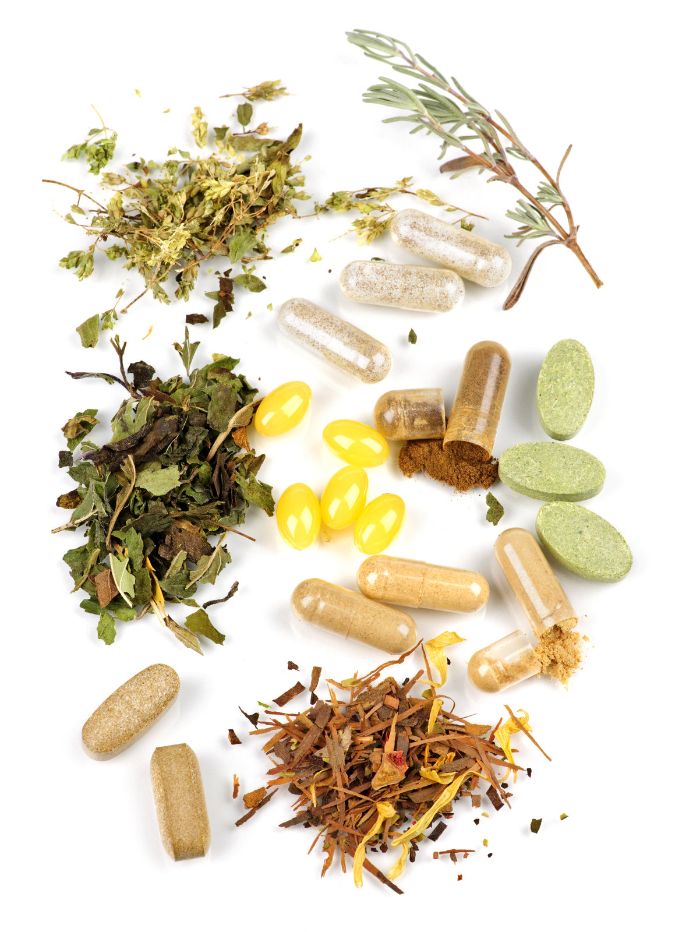
The Efficacy of Herbal Supplements: What Research Says
There are a few things you should be aware of if you decide to use herbs to naturally increase GABA in the brain:
- Limited Studies: While anecdotal evidence supports the use of these herbs, scientific studies are still limited.
- Safety First: Always consult a healthcare provider before starting your herbal GABA soothe, especially if you’re already on medication.
- Quality Matters: Opt for high-quality, organic supplements from reputable sources to ensure you’re getting the most benefit.
- Individual Response: Remember, everyone’s body reacts differently to supplements. What works for one person may not work for you.
Hack 10: The GABA Supplements Strategy
When you’re searching the aisles for what natural supplements increase GABA, you might not only come across herbs but also products that are directly labeled as ‘GABA supplements’. These are over-the-counter options that aim to directly boost your GABA levels and come with a range of additional ingredients to enhance their effectiveness.
While the science behind their ability to cross the blood-brain barrier is still under scrutiny, they offer a targeted approach that many find beneficial. Let’s delve into what these supplements bring to the table.
The Composition of GABA Supplements
GABA supplements primarily contain a synthetic form of the neurotransmitter. But they don’t stop there. Many are fortified with additional vitamins like B6, minerals such as magnesium, and even calming herbs like valerian root. These extra ingredients are included to enhance the supplement’s overall effectiveness and offer a more comprehensive approach to brain health.
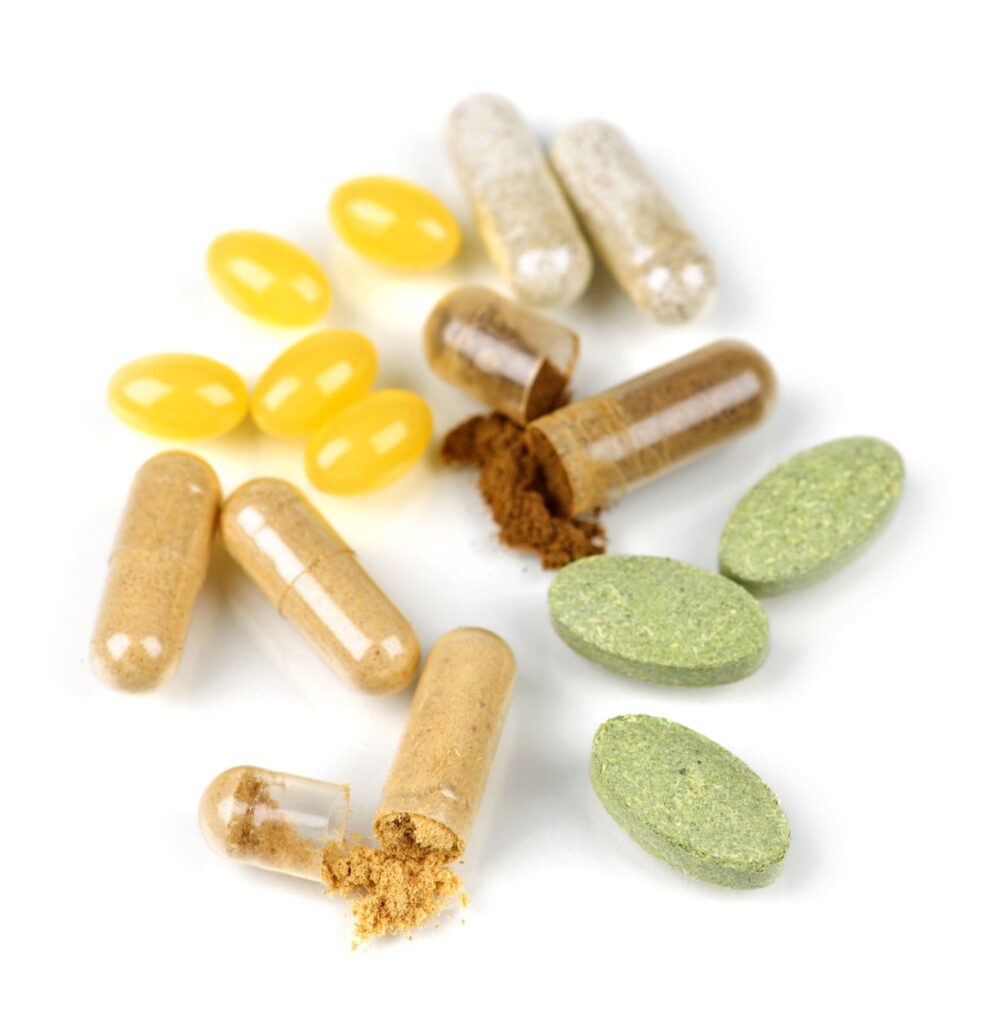
The Science Behind It
While GABA supplements aim to directly increase GABA levels in the brain, their ability to do so effectively is still under debate. The primary issue is whether or not these synthetic forms can cross the blood-brain barrier—a protective shield that prevents many substances from entering the brain. Some studies suggest they can, while others are less conclusive. Numerous studies do, however, support the benefits of GABA supplements for anxiety and sleep.
Not All GABA Supplements are Created Equal
If you’re in the market for a supplement, you may want to look into the best GABA brand that has been vetted for quality, safety and efficacy. Doing your due diligence by researching customer reviews and clinical studies can offer additional insights into a brand’s reputation. Moreover, some GABA-ease products offer third-party testing results, providing an extra layer of assurance for the discerning consumer.
So, what is the best GABA supplement? Here are our recommendations for supplements to increase GABA:
PharmaGABA by Peak Performance

Peak Performance’s capsules stand out for their PharmaGABA benefits, offering a natural way to achieve mental calmness and better sleep. These capsules are vegan-friendly and free from common allergens, ensuring a quality product accessible to various lifestyles. High manufacturing standards add an extra layer of trust. Additionally, each purchase supports a charitable cause through Vitamin Angels.
GABA Calm by Source Naturals

GABA Calm by Source Naturals has garnered numberless positive reviews for its effective 750mg natural GABA supplement formula. A single daily capsule may help reduce restlessness, promote relaxation, and improve sleep quality. The product is allergen-free and made in the USA, adhering to FDA-approved Good Manufacturing Practices. With over 40 years of brand trust, it’s a reliable choice for those seeking a natural path to calmness.
Now GABA 500 mg

Now GABA stands out as one of the top GABA supplements, offering 500 mg of GABA along with Vitamin B-6 for enhanced neurotransmitter support. The flexible dosage allows you to take 1 capsule 2 to 3 times daily, making it easy to tailor to your needs. Certified as Non-GMO, vegan, and gluten-free, it’s a versatile option for a wide range of dietary preferences.
NutraHarmony GABA

If you’re looking to buy GABA supplement combos, NutraHarmony offers a compelling option with its 750 mg GABA formula. Enhanced with 150 mg of L-theanine and other supportive nutrients, these capsules are designed for optimal absorption and effectiveness. Ideal for those seeking relaxation, better sleep, and cognitive support, this made-in-the-USA product is free from GMOs and artificial additives.
Dream Water Snoozeberry GABA Powder

Dream Water Snoozeberry Sleep Powder is designed for quick and effective relief from occasional sleeplessness. The blend includes GABA, Melatonin, and 5-HTP to help you relax, fall asleep quickly, and achieve deep sleep. No GABA supplement side effects have been reported for this product. The powder format allows for easy mixing with hot or cold water, to be taken about 30 minutes before bedtime.
Always remember, if you’re taking medications or have pre-existing health conditions that could interact with the supplement, make sure to talk to your doctor. You should get green light before starting your supplements for GABA deficiency.
The Limitations of Natural Approaches
While natural approaches like herbs, exercise, and mindfulness can be effective in boosting GABA levels, they’re not a one-size-fits-all solution. It’s important to recognize their limitations:
- Inconsistent Results: Natural remedies may work for some people but not for others. The effects can also vary in intensity and duration.
- Lack of Scientific Evidence: Many natural approaches have limited scientific backing, making it difficult to gauge their effectiveness reliably.
- Interactions with Medications: Some herbs and natural supplements can interact with prescription medications, leading to unwanted side effects.
When Should You Consult a Doctor?
- Persistent Symptoms: If you’ve tried natural approaches and still experience symptoms like chronic stress, anxiety, or insomnia, it’s time to consult a healthcare provider.
- Severe Symptoms: In cases of severe anxiety, depression, or other mental health issues, immediate medical intervention is critical.
- Existing Medical Conditions: If you have a pre-existing medical condition or are taking other medications, consult a doctor before starting any natural remedies.
Given these factors, it is clear that natural methods offer beneficial options for increasing GABA levels. Nevertheless, they ought to be a part of a more comprehensive treatment strategy. And in some circumstances, you might need medical assistance.
Measuring Your Success: Tracking GABA Levels
So you’ve decided to take steps to take care of your GABA levels, whether through lifestyle hacks, supplements, or a combination of both. But how do you know if your efforts are paying off? While tracking GABA levels directly is challenging, there are several ways to gauge your progress and gain valuable insights into your mental well-being.
- Magnetic Resonance Spectroscopy (MRS): This research tool can estimate GABA levels in the brain. However, it’s important to note that MRS is not a standard clinical test and is primarily used in research settings.
- Symptom Tracking: One of the most straightforward methods is to keep a detailed journal of your symptoms. Note changes in mood, sleep quality, and stress levels, as these can be indicators of GABA activity. You might decide to use wearable tech like smartwatches or mental health apps that help you track.
- Consult a Healthcare Provider: Regular visits to a healthcare provider can offer professional assessments of your mental state and may include recommendations for further tests or treatments.
Conclusion: Your Personalized Blueprint for Increasing GABA Naturally
Armed with a toolkit of natural strategies, you’re better equipped to navigate the turbulent waters of low GABA levels: You now know how to break that relentless cycle of tension and sleepless nights. From mindful breathing to the foods you consume, each strategy can be a useful part of your personal plan for emotional stability.
As you implement these hacks to increase GABA naturally, remember that this is a dynamic process. Tracking your symptoms and fine-tuning your approach are ongoing tasks. Your blueprint is not set in stone; it’s a living document, continually updated through your own observations and experiences.
So, get started and take the first steps to calm your personal tempest.

Key Points and FAQ
Can you increase GABA naturally?
Yes, you can increase GABA naturally through methods such as deep breathing exercises, which activate the parasympathetic nervous system and encourage GABA production. Cutting down on stimulants like caffeine can also help increase GABA levels by reducing excitatory neurotransmitter activity.
How to increase GABA and serotonin naturally?
To increase both GABA and serotonin, you can engage in regular exercise, which has been shown to boost levels of both neurotransmitters. Foods rich in tryptophan, such as turkey and eggs, can specifically help increase serotonin. Mindfulness meditation has been shown to increase GABA levels by reducing stress and promoting relaxation.
How to lower glutamate and increase GABA?
A balanced diet rich in antioxidants can mitigate the effects of oxidative stress, which is known to exacerbate glutamate toxicity. Magnesium, acting as a natural NMDA receptor antagonist, can inhibit excessive glutamate activity, thereby promoting a more balanced neurotransmitter environment. Incorporating amino acid-rich foods like L-theanine can specifically target GABA production. Additionally, mindfulness techniques have been scientifically shown to increase GABA levels, offering a natural way to counterbalance elevated glutamate.
What are high glutamate low GABA symptoms?
High levels of glutamate and low levels of GABA can result in anxiety, irritability, and insomnia. This imbalance may also be linked to mood disorders and difficulty focusing. Elevated glutamate can cause nervous system over-excitation, while insufficient GABA fails to counteract this effect.
How to increase GABA fast?
To increase GABA levels quickly, consider a multi-faceted approach that includes nutritional supplements like L-Theanine and Magnesium, dietary changes such as incorporating fermented foods and complex carbs, and lifestyle modifications like mindfulness and aerobic exercise. Consult your healthcare provider to discuss any potential medication interactions and side effects before starting new supplements or treatments.
How do GABA natural sources compare to synthetic supplements in effectiveness?
Natural GABA sources like fermented foods and leafy greens are generally well-tolerated and offer additional nutrients. Synthetic supplements provide a more concentrated form of GABA but may come with side effects. Both have their pros and cons, and the effectiveness can vary from person to person.
What are the best GABA foods?
The best GABA foods include fermented foods like yogurt, kefir, and sauerkraut. Leafy greens and foods rich in magnesium like nuts and seeds are also good choices. These foods not only boost GABA but also provide other essential nutrients.
What are the best natural sources of GABA?
The most effective natural sources for boosting GABA levels include fermented foods such as yogurt, kefir, and sauerkraut, which contain probiotics that aid in GABA production. Additionally, leafy greens like spinach and kale are rich in magnesium, a mineral that acts as a co-factor for the enzyme that converts glutamate to GABA. Fruits like bananas and tomatoes contain GABA itself, providing a direct source of this neurotransmitter.
Is it possible to repair GABA receptors?
Yes, it is possible to repair GABA receptors through various means, including lifestyle changes and targeted supplements. Practices like regular exercise and stress management techniques such as mindfulness can improve the sensitivity of GABA receptors. Certain supplements like magnesium and taurine are also known to support GABA receptor function.
What is gamma aminobutyric acid cream?
Gamma aminobutyric acid (GABA) cream is a topical formulation containing GABA as an active ingredient. It is often marketed for its potential anti-aging and skin-smoothing benefits. The cream aims to relax facial muscles, thereby reducing the appearance of fine lines and wrinkles. However, the effectiveness of topical GABA in penetrating the skin and providing these benefits is still a subject of ongoing research.
How much GABA should I take for sleep?
The best GABA dosage for sleep varies from person to person. A common recommendation is to start with a low dose, such as 100 to 200 mg, about an hour before bedtime. Monitoring your sleep quality and adjusting the dosage accordingly can help you find the most effective amount for your needs.
How much GABA for anxiety?
The typical starting dose for GABA for anxiety ranges from 200 to 400 mg per day. Individual needs can vary, so it’s important to monitor your anxiety levels to adjust the dosage accordingly. Keep in mind that other medications or health conditions may affect how GABA works for you.
Can you take GABA for depression?
GABA may have a role in depression by influencing other key brain chemicals like Corticotropin-Releasing Hormone and serotonin. While it’s not the main treatment for depression, GABA supplements could be explored as part of a comprehensive treatment strategy. The effectiveness of GABA in treating depression may vary from person to person, depending on their unique neurochemical makeup.
How to take GABA supplements?
GABA supplements come in various forms including capsules, tablets, and powders. The dosage varies depending on the product and individual needs, so it’s important to start with a lower dose and adjust as necessary. Always read the manufacturer’s instructions for proper usage, and be mindful of potential interactions with other supplements or medications you may be taking.
Can you take GABA for ADHD?
GABA supplements are sometimes used to manage ADHD symptoms, given GABA’s role in calming the nervous system. However, scientific support for the effectiveness of GABA in treating ADHD is limited. GABA supplements should not be considered substitutes for traditional ADHD treatments.
Do nootropics GABA formulations work?
Nootropics with GABA formulations claim to enhance cognitive function and mental clarity while reducing stress and anxiety. However, the effectiveness of these formulations is still a subject of ongoing research. Some users report positive experiences, but definitive scientific evidence supporting the efficacy of GABA nootropics is limited.
What are the 6 neurotransmitters of the brain?
The six major neurotransmitters in the brain are dopamine, serotonin, norepinephrine, acetylcholine, glutamate, and GABA (gamma-aminobutyric acid). These neurotransmitters play crucial roles in regulating mood, attention, and other cognitive functions. Amino acids and the brain are closely linked, as amino acids serve as precursors for some neurotransmitters. Balancing these neurotransmitters can be achieved through various means, including diet and lifestyle changes.
Can you take too much GABA?
Yes, taking too much GABA can lead to side effects like drowsiness, shortness of breath, and tingling sensations. Excessive intake may also disrupt the natural balance of neurotransmitters in the brain. Stick to recommended dosages to avoid these issues.
Are there GABA vitamins?
Yes, there are vitamins specifically formulated to support GABA levels in the brain. These often contain ingredients like Vitamin B6 and magnesium, which are essential for the synthesis of GABA. However, these should not be confused with pure GABA supplements, as they aim to support GABA production rather than directly supplementing it.
What’s the best time to take GABA?
The best time to take GABA depends on the reason for its use. For sleep support, it’s generally recommended to take it about an hour before bedtime. For stress or anxiety relief, it may be beneficial to take it in the morning or spread the dosage throughout the day. The timing can influence the effects of GABA on your body and mind.
What are GABA neurons?
GABA neurons are specialized neurons that release GABA as their primary neurotransmitter. These neurons are important for inhibiting the activity of other neurons, thereby regulating brain function and mood. They help maintain the balance of excitation and inhibition in the brain, which is vital for healthy cognitive and emotional functioning.
What are the side effects of GABA?
Common side effects of GABA supplements may include drowsiness, upset stomach, and headaches. Some people may also experience rapid heartbeat or shortness of breath. These side effects are generally mild but can vary from person to person.
Can I take ashwagandha and GABA together?
Ashwagandha and GABA are both used for stress relief and anxiety reduction. Combining them could lead to excessive sedation or drowsiness, as both have calming effects on the nervous system. Additionally, the combination could potentially interfere with medications you may be taking. Always consult with a healthcare provider for personalized advice.

Sources
Allen MJ, Sabir S, Sharma S. GABA Receptor. Nih.gov. Published February 13, 2023. Accessed October 5, 2023. https://www.ncbi.nlm.nih.gov/books/NBK526124/.
Piril Hepsomali, Groeger JA, Nishihira J, Scholey A. Effects of Oral Gamma-Aminobutyric Acid (GABA) Administration on Stress and Sleep in Humans: A Systematic Review. Frontiers in Neuroscience. 2020;14. doi:https://doi.org/10.3389/fnins.2020.00923.
Abdou, A. M., Higashiguchi, S., Horie, K., Kim, M., Hatta, H., and Yokogoshi, H. (2006). Relaxation and immunity enhancement effects of gamma-aminobutyric acid (GABA) administration in humans. Biofactors 26, 201–208. doi: 10.1002/biof.5520260305.
Boonstra E, de Kleijn R, Colzato LS, Alkemade A, Forstmann BU, Nieuwenhuis S. Neurotransmitters as food supplements: the effects of GABA on brain and behavior. Front Psychol. 2015 Oct 6;6:1520. doi: 10.3389/fpsyg.2015.01520. PMID: 26500584; PMCID: PMC4594160.
Yamatsu A, Yamashita Y, Pandharipande T, Maru I, Kim M. Effect of oral γ-aminobutyric acid (GABA) administration on sleep and its absorption in humans. Food Sci Biotechnol. 2016 Apr 30;25(2):547-551. doi: 10.1007/s10068-016-0076-9. PMID: 30263304; PMCID: PMC6049207.
Kim S, Jo K, Hong KB, Han SH, Suh HJ. GABA and l-theanine mixture decreases sleep latency and improves NREM sleep. Pharm Biol. 2019 Dec;57(1):65-73. doi: 10.1080/13880209.2018.1557698. PMID: 30707852; PMCID: PMC6366437.
Cox RC, Olatunji BO. A systematic review of sleep disturbance in anxiety and related disorders. J Anxiety Disord. 2016 Jan;37:104-29. doi: 10.1016/j.janxdis.2015.12.001. Epub 2015 Dec 21. PMID: 26745517.
Diana M, Quílez J, Rafecas M. Gamma-aminobutyric acid as a bioactive compound in foods: a review. Journal of Functional Foods. 2014;10:407-420. doi:https://doi.org/10.1016/j.jff.2014.07.004.
Mami Fujibayashi, Kamiya T, Kinya Takagaki, Toshio Moritani. Activation of Autonomic Nervous System Activity by the Oral Ingestion of GABA. Nippon Eiyō Shokuryō Gakkaishi. 2008;61(3):129-133. doi:https://doi.org/10.4327/jsnfs.61.129.
Jie F, Yin G, Yang W, Yang M, Gao S, Lv J, Li B. Stress in Regulation of GABA Amygdala System and Relevance to Neuropsychiatric Diseases. Front Neurosci. 2018 Aug 14;12:562. doi: 10.3389/fnins.2018.00562. PMID: 30154693; PMCID: PMC6103381.
Neckelmann D, Mykletun A, Dahl AA. Chronic insomnia as a risk factor for developing anxiety and depression. Sleep. 2007 Jul;30(7):873-80. doi: 10.1093/sleep/30.7.873. PMID: 17682658; PMCID: PMC1978360.
Okita Y, Nakamura H, Kouda K, Takahashi I, Takaoka T, Kimura M, Sugiura T. Effects of vegetable containing gamma-aminobutyric acid on the cardiac autonomic nervous system in healthy young people. J Physiol Anthropol. 2009;28(3):101-7. doi: 10.2114/jpa2.28.101. PMID: 19483370.
Petty F. GABA and mood disorders: a brief review and hypothesis. Journal of Affective Disorders. 1995;34(4):275-281. doi:https://doi.org/10.1016/0165-0327(95)00025-i.
Vashchinkina E, Panhelainen A, Teemu Aitta-aho, Korpi ER. GABAA receptor drugs and neuronal plasticity in reward and aversion: focus on the ventral tegmental area. Frontiers in Pharmacology. 2014;5. doi:https://doi.org/10.3389/fphar.2014.00256.
Briguglio M, Dell’Osso B, Panzica G, Malgaroli A, Banfi G, Zanaboni Dina C, Galentino R, Porta M. Dietary Neurotransmitters: A Narrative Review on Current Knowledge. Nutrients. 2018 May 10;10(5):591. doi: 10.3390/nu10050591. PMID: 29748506; PMCID: PMC5986471.
Streeter CC, Whitfield TH, Owen L, Rein T, Karri SK, Yakhkind A, Perlmutter R, Prescot A, Renshaw PF, Ciraulo DA, Jensen JE. Effects of yoga versus walking on mood, anxiety, and brain GABA levels: a randomized controlled MRS study. J Altern Complement Med. 2010 Nov;16(11):1145-52. doi: 10.1089/acm.2010.0007. Epub 2010 Aug 19. PMID: 20722471; PMCID: PMC3111147.
Krishnakumar D, Hamblin MR, Lakshmanan S. Meditation and Yoga can Modulate Brain Mechanisms that affect Behavior and Anxiety-A Modern Scientific Perspective. Anc Sci. 2015 Apr;2(1):13-19. doi: 10.14259/as.v2i1.171. PMID: 26929928; PMCID: PMC4769029.
Anthony, Prasanna Tadi. Biochemistry, Gamma Aminobutyric Acid. Nih.gov. Published May 2023. Accessed October 5, 2023. https://www.ncbi.nlm.nih.gov/books/NBK551683/.
Ma X, Yue ZQ, Gong ZQ, Zhang H, Duan NY, Shi YT, Wei GX, Li YF. The Effect of Diaphragmatic Breathing on Attention, Negative Affect and Stress in Healthy Adults. Front Psychol. 2017 Jun 6;8:874. doi: 10.3389/fpsyg.2017.00874. PMID: 28626434; PMCID: PMC5455070.
Andrzej Leś, Grabowski SJ. Hydration of GABA and of the GABA·ZN2+complex: A Monte Carlo simulation study. International Journal of Quantum Chemistry. 1984;26(2):167-181. doi:https://doi.org/10.1002/qua.560260203.
Alasmari F. Caffeine induces neurobehavioral effects through modulating neurotransmitters. Saudi Pharm J. 2020 Apr;28(4):445-451. doi: 10.1016/j.jsps.2020.02.005. Epub 2020 Feb 17. PMID: 32273803; PMCID: PMC7132598.
Bruni O, Ferini-Strambi L, Giacomoni E, Pellegrino P. Herbal Remedies and Their Possible Effect on the GABAergic System and Sleep. Nutrients. 2021 Feb 6;13(2):530. doi: 10.3390/nu13020530. PMID: 33561990; PMCID: PMC7914492.
Stagg CJ, Bachtiar V, Johansen-Berg H. What are we measuring with GABA magnetic resonance spectroscopy? Commun Integr Biol. 2011 Sep;4(5):573-5. doi: 10.4161/cib.4.5.16213. Epub 2011 Sep 1. PMID: 22046466; PMCID: PMC3204132.
Fishman BE, Gianutsos G. Inhibition of 4-aminobutyric acid (GABA) turnover by chlordane. Toxicol Lett. 1985 Aug;26(2-3):219-23. doi: 10.1016/0378-4274(85)90170-5. PMID: 4035713.
